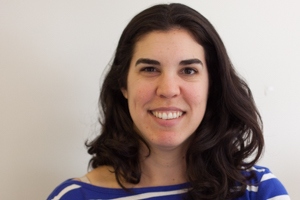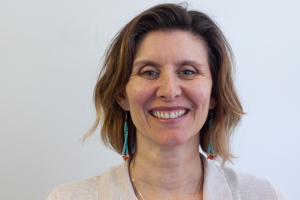Transforming our union’s relationship with Kaiser
The National Union of Healthcare Workers and Kaiser Permanente are forging a new relationship, working together to achieve our common goals of making Kaiser both the employer and provider of choice. The process started about eight months ago when top Kaiser executives in Northern California made a commitment to work collaboratively with NUHW.
NUHW’s Northern California mental health clinicians are leading the way. On February 24, more than 100 stewards and leaders from our Integrated Behavioral Health Services (IBHS) bargaining unit joined about 150 Kaiser managers from throughout Northern California at the Oakland Marriott for an all-day summit that was jointly planned and sponsored by NUHW and Kaiser. (Read more about the summit below).
The summit marked the official beginning of the process of building collaboration and engagement among clinicians and managers in our IBHS unit, a process we plan to replicate for our three other Kaiser bargaining units. We are currently working with Kaiser to develop a similar process in our Southern California Psych-Social unit — our first meeting with SoCal Kaiser executives was April 14 and we have more meetings scheduled. The success we have in our two mental health units will provide a pathway for us to build a similar collaborative relationship for our Northern California Optical unit and our Southern California Healthcare Professionals unit.
Kaiser–IBHS summit and beyond
The summit (pictured above) provided an opportunity for Kaiser and NUHW leadership to share their vision and for clinicians and managers to discuss local issues and work toward strengthening our local Professional Practice Committees.
The morning started with a unified message from Kaiser and NUHW leadership in which both committed to making Kaiser Permanente “the national leader in mental health care and the employer of choice.” Janet Liang, Kaiser’s Northern California president, explained how she and other senior leaders of Kaiser came to the conclusion that the only way to accomplish this goal would be to work closely with NUHW members.
NUHW President Sal Rosselli spoke about the five-year struggle we recently endured and about how and why that struggle became public. Rosselli emphasized that the union has always preferred to work collaboratively with Kaiser and that many of the current leaders of NUHW have a long history of doing so.

Kirsten Quinn-Siegel
“Having so many managers and frontline staff together to hear the same message at the same time from the leadership of both Kaiser and the union was very powerful,” said Kirsten Quinn-Siegel, an LMFT at Kaiser Richmond.
After a presentation about Kaiser’s national mental health initiatives, clinicians and managers spent the bulk of the afternoon discussing how the Local Professional Practice Committees (PPCs), which are part of our contract, would be an important vehicle for building collaboration at the local level around a range of issues, from professional practice and patient service to access and operational improvements.
Both managers and clinicians from each of the 28 local PPCs were seated together for table discussions around several topics, including operating guidelines for the PPCs, the characteristics of highly functional groups, and deciding which issues each PPC would focus on in its next meeting. Kaiser leadership assured local PPC members that the company is committed to assessing and then providing them with the appropriate training, support, and/or facilitation. The Regional PPC has been charged with developing the specific plan to accomplish this goal.
This summit was successful in laying the foundation for collaboration, but it will require unwavering commitment and a lot of hard work to ensure Kaiser and NUHW achieve our shared goals.

Willow Thorsen
“I am very optimistic and inspired after attending the summit,” said Willow Thorsen, an LCSW from Santa Rosa Adult Psychiatry, “but I still have concerns about how this will effectively be transmitted down through the organization so that local PPCs can truly have resources and are empowered to be highly effective groups.”
“Some of these PPCs will hit the ground running,” said Rosselli, “others will need some time to get going. And some, where an ‘us vs. them’ attitude persists, may require more facilitation and role modeling. It won’t be easy but I’m confident that we can build a strong working relationship that better serves Kaiser, NUHW members, and most importantly, Kaiser patients.”
Since the summit, Kaiser and NUHW have each made a sizable investment of time, effort, and resources to ensure the vision and commitments of the Summit reach fruition. The Regional PPC, consisting of three steward leaders, one NUHW staffer, three high-level Kaiser regional mental health administrators, and one Kaiser labor relations representative, has been meeting for more than 20 hours each month. The RPPC has developed a toolkit for the local PPCs to help them conduct effective meetings, has surveyed and completed a rigorous assessment of each of the 28 local PPCs to determine the level of support each local committee needs to maximize its effectiveness, and is currently developing a plan to ensure each committee receives the support it needs. In addition, the RPPC has provided guidance on the implementation of the Schedule Management provisions of the collective bargaining agreement and continues to work on issues around staffing, recruitment, retention, subcontracting, etc.


